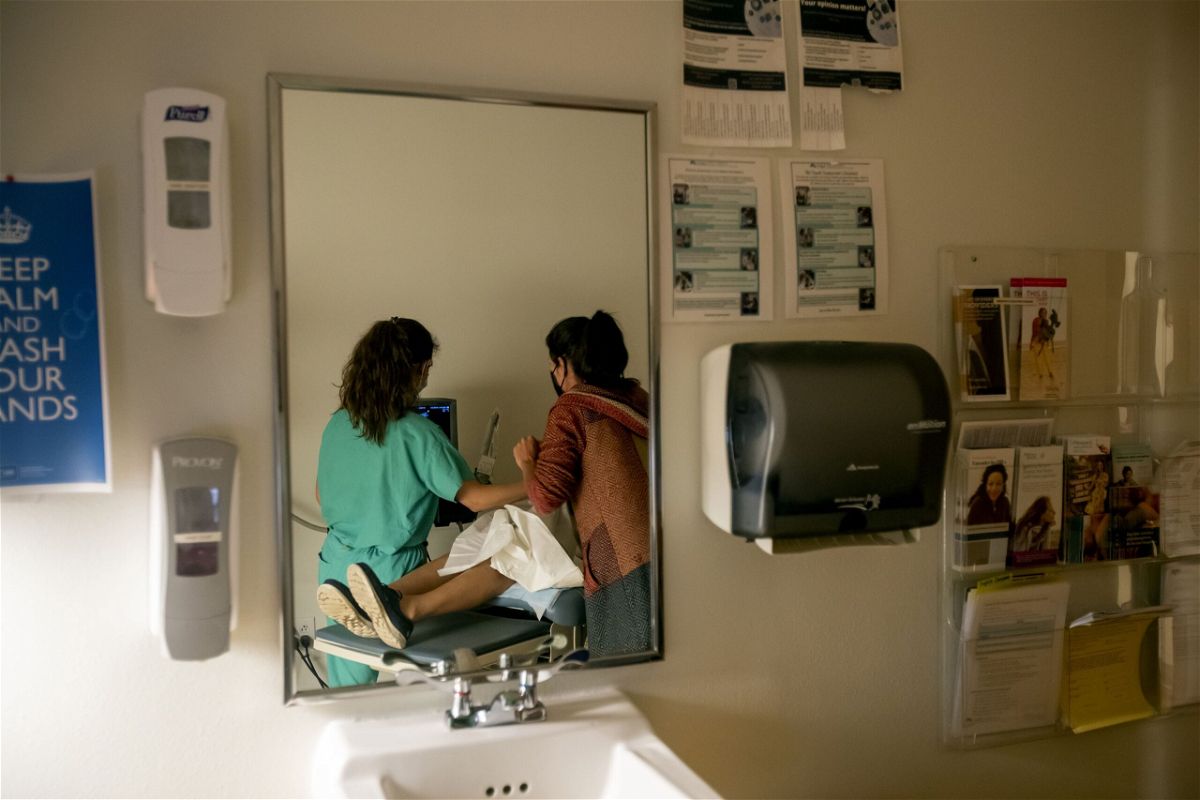Abortions have increased significantly in states that border those with bans, new analysis finds

New Mexico and Wyoming had the largest increase in abortions
By Deidre McPhillips, CNN
(CNN) — Abortions have increased substantially in most states where they remain legal post-Dobbs, according to a new analysis. The increases have been particularly significant in states bordering others with bans, suggesting widespread travel for care.
The Guttmacher Institute, a research and policy organization focused on sexual and reproductive health that supports abortion rights, launched a new dashboard Thursday that estimates the number of abortions provided in the United States each month. The estimates are based on a regular survey of a core set of providers and broadened to the state level using a model that also factors in historical trends. The latest findings compare the number of abortions provided in the first half of 2023 to a comparable period in 2020.
New Mexico and Wyoming had the largest increase in abortions, with more than three times as many provided in the first half of 2023 compared with 2020. The number of abortions also more than doubled in Kansas and South Carolina in that time.
Overall, the data suggests that there were thousands more abortions in the states where the procedure remained legal in the first half of 2023 than there were nationwide during six months of 2020 — up from about 465,000 to nearly 511,000.
However, the new data is based on a model with a broader margin of error than counts from earlier years, making national estimates less certain. Estimates from the Guttmacher Institute represent abortions provided within formal health care settings, including in-person clinics and telehealth. Estimates do not include data on self-managed abortions, such medication abortion provided by AidAccess.
Caitlin Myers, a professor of economics at Middlebury College, told CNN that she was not particularly surprised by the increase in abortions.
People seeking abortions are “pouring out” of states with restrictions, said Myers, who has researched abortion trends but was not involved in the new analysis. And “there are states where abortion access has actually expanded in the wake of Dobbs as people, in particular, have become more aware of and available to access telehealth.”
“What we know is that many people are managing to get out of ban states, but that doesn’t mean it’s easy,” she said. “We are seeing an increase in abortions, but we expect they would have increased even more if it weren’t for the fact that these bans are trapping some populations, particularly poor populations, in banned states.”
However, not all of the increases can be directly attributed to changes that resulted from the US Supreme Court’s Dobbs decision last year, said lsaac Maddow-Zimet, a data scientist with the Guttmacher Institute and lead for the new project. The Covid-19 pandemic may have affected individual attitudes toward pregnancy, and expanded access to medication abortion through telehealth could have affected trends, among other factors.
“The need for abortion does not change because legality has shifted,” said Dr. Jamila Perritt, an ob/gyn and president and CEO of the advocacy group Physicians for Reproductive Health.
“When we talk about these abortion numbers, it can’t be in a vacuum,” said Perritt, who was not involved in the new analysis. “It has to be across this larger arc of understanding the implications of restricting reproductive health care and access to that care for the last several decades.”
Decisions about carrying a pregnancy to term have always been shaped by the resources that are available, she said. Access to family planning resources can play a role, as well as the economy.
“As resources in our communities continue to be diminished and undermined, then carrying a child to term is not is not something that folks can do and are willing to do,” Perritt said.
Earlier data from the Guttmacher Institute shows that abortions had already been on the rise between 2017 and 2020.
However, many states that protected abortion access saw much larger increases in abortions between 2020 and 2023 than they did between 2017 and 2020.
In Illinois, for example, the number of abortions jumped 69% between 2020 and 2023, compared with a 25% increase between 2017 and 2020. Similarly, in South Carolina, abortions increased 124% since 2020, compared with a 4% increase between 2017 and 2020.
As monthly updates continue, estimates may reflect the impact of additional restrictions that been put in place since June, such as the six-week ban that was upheld by the South Carolina Supreme Court in August.
An earlier analysis sponsored by The Society of Family Planning, a nonprofit focused on abortion and contraception, found that there were 25,000 fewer abortions in the US in the nine months after the Dobbs decision.
Tracking abortion trends is difficult, Perritt said, and many unknown factors make it hard to predict what the rest of the year will bring.
“We’re going to continue to see the impact of this policy decision forcing people from their communities to seek abortion care whatever way they can, whether it’s self managing or clinic-based care in neighboring states,” she said.
The-CNN-Wire
™ & © 2023 Cable News Network, Inc., a Warner Bros. Discovery Company. All rights reserved.